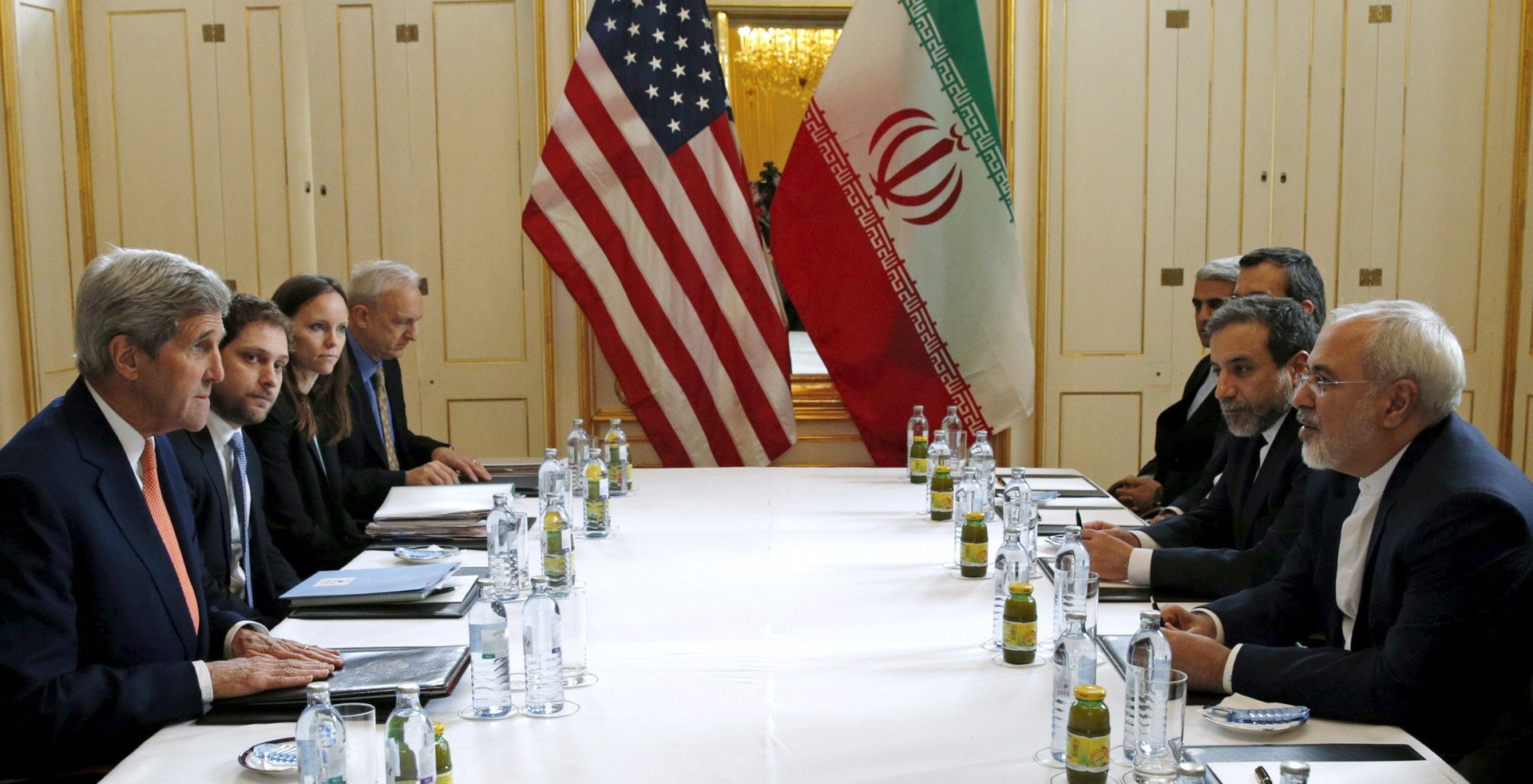After 36 years, Iran and the West take the final, historic step to thaw diplomatic relations
International inspectors report that Iran has complied with all requirements regarding the diminishment of its nuclear capability, clearing the way for Tehran to receive more than $100 billion in cash and to start exporting hundreds of thousands of barrels of added oil supplies a day.


International inspectors report that Iran has complied with all requirements regarding the diminishment of its nuclear capability, clearing the way for Tehran to receive more than $100 billion in cash and to start exporting hundreds of thousands of barrels of added oil supplies a day.
The announcement—made in the presence of senior world leaders in Vienna tonight (Jan. 16)—represents the final step toward a long-sought thaw in diplomatic relations between Iran’s revolutionary government and the West.
Shortly afterwards, the EU and United States announced the official end of nuclear sanctions.
In a statement, International Atomic Energy Agency director general Yukiya Amano confirmed that “agency inspectors on the ground verified that Iran has carried out all measures required under the [the Joint Comprehensive Plan of Action], to enable implementation day to occur.”
The lifting of the decades-old sanctions is an important first step, but it has not ended tensions between the sides—much acrimony remains, and the sides remain far apart on numerous issues including the status of Syrian leader Bashar al-Assad, and Israeli politics. Iran is also currently embroiled in a dangerous confrontation with Saudi Arabia.
In addition, the accord arguably brings a new element of instability to the world—up to 1 million barrels a day of new oil exports at a time when crude oil selling below $30 a barrel. The plunge of oil prices has contributed to a global recession, seen in plummeting share prices around the world.
Still, the implementation of the accord completed last July is a momentous achievement. Bringing together the US and Tehran represents a pivotal deal that, for at least a decade, should remove the peril of a potentially nuclear Iran from the volatile Middle East.
“Implementation Day” is the culmination of an effort initiated by US president Barack Obama. While campaigning in 2008, Obama promised to differentiate himself from then-president George W. Bush by talking to America’s enemies. Last year, Obama ended a more than half-century-long diplomatic freeze with Cuba.
Until the very last minute, hard-liners in both the US and Iran tried to scuttle the agreement. And the deal looked to be teetering on Jan. 12 when Iran captured 10 US sailors whose ships had wandered into Iranian waters in the Persian Gulf. With tensions high, the sailors were released the next day. And in what appeared to be a final step in the nuclear agreement, Iran and the US completed a prisoner swap today that included Washington Post reporter Jason Rezaian, no doubt intended to clear away as many main points of acute friction as possible in advance of the deal.